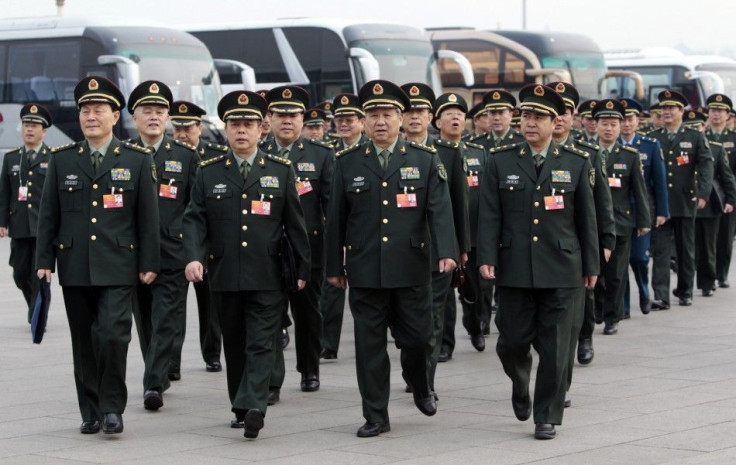China's Military Power: Now Third-Largest Arms Exporter, Unseating Germany

China has expanded its global military influence to become the world’s third-largest arms exporter as it produces more sophisticated weaponry. According to new data from the Stockholm International Peace Research Institute (SIPRI), during the five-year period between 2009 and 2014 China solidified its role as a global supplier of arms, behind the United States and Russia.
China now represents 5 percent of a global export market valued at more than $300 billion a year. While China has managed to narrowly unseat Germany and France as an arms exporter, its slice of the market is still a long way behind America's 31 percent and Russia's 27 percent.
China’s state-run companies have become increasingly popular names in defense weaponry, contributing to the 143 percent rise in exports during the five-year period. More than 68 percent of Chinese exports are sold to three countries: Pakistan, Bangladesh and Myanmar. Though China’s exports are predominately sold to countries in the Asia-Pacific region, they are increasingly brokered in Africa, with major arms being exported to 18 African states during the time period. This includes armored vehicles, transport and training aircrafts, and drones. According to the Wall Street Journal, China’s Norinco Group is one of the state-owned companies leading the charge in expanding arms into new territories. The company has sold armed drones to Nigeria to help combat the growing Boko Haram rebel forces. China has also been making strides in modernizing and improving the quality of sales.
“The equipment you get nowadays from China is much better than 10 to 15 year ago,” Siemon Wezeman, a senior researcher at SIPRI said, adding that China can produce some of the same equipment that the U.S. and Russia can, but at cheaper prices.
China’s military export modernization is just a part of its larger military plans, and the improvement in China’s military prowess has become a central part of the country's development into a global superpower. Geopolitical dominance, particularly in the South China Sea, is supported by China's increasingly modern military and growing defense budget. China’s reclamation efforts and military presence in the area has raised concern among its Southeast Asian neighbors, like Vietnam and the Philippines, which are embroiled in territorial disputes in the region.
Beefing up China’s military has been one of President Xi Jinping’s priorities since he took office in November 2012. China said it plans to raise its defense budget in 2015 for the second year in a row by about 10 percent to $141 billion, making it the second-biggest military spender in the world.
© Copyright IBTimes 2025. All rights reserved.





















